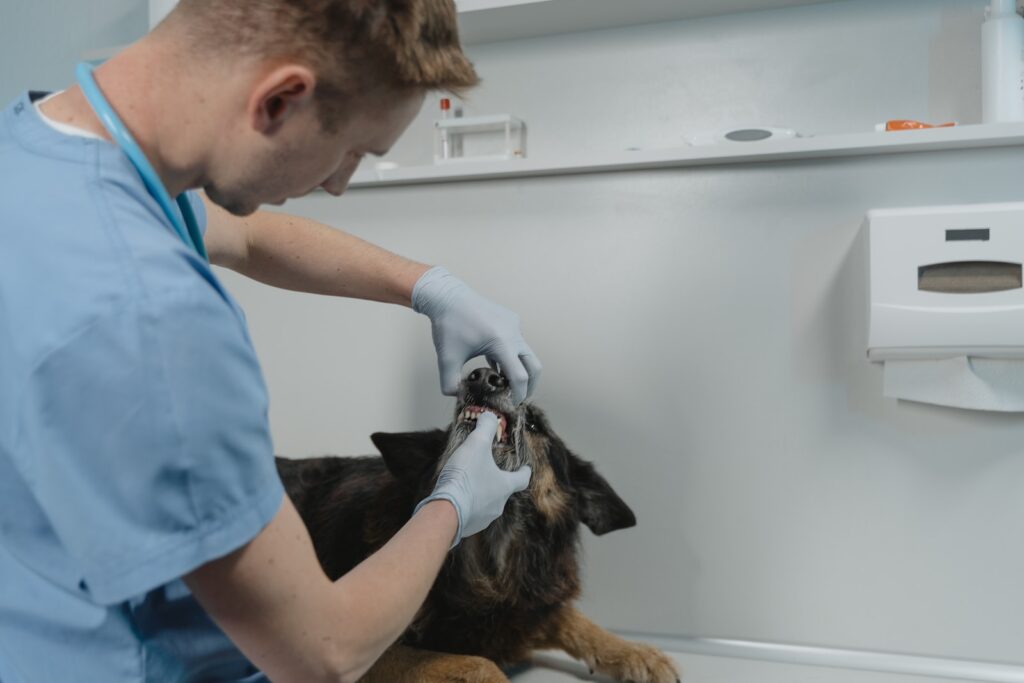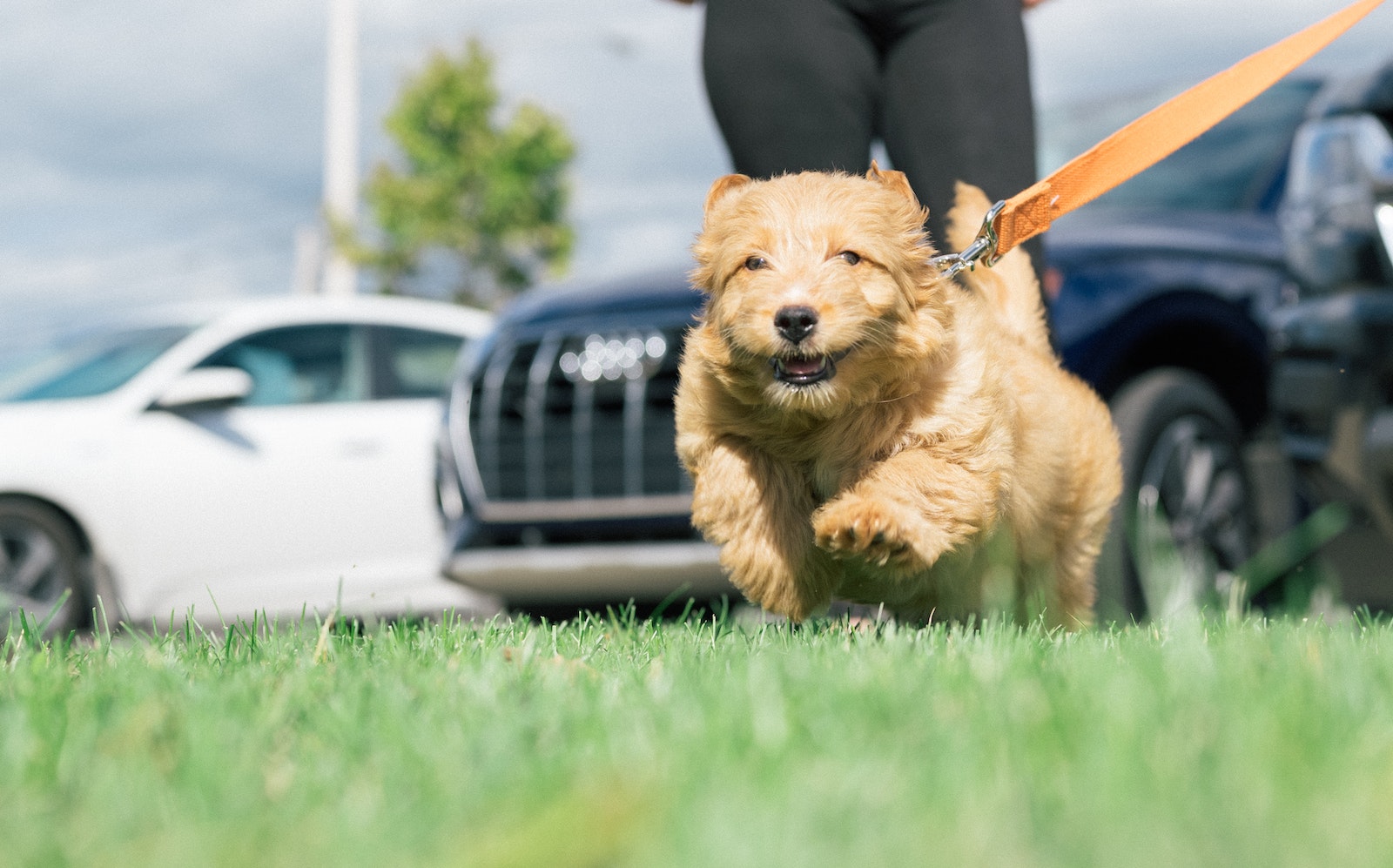So, you’re thinking about getting a Golden Doodle, huh? Well, you’re in for a treat—literally and figuratively! These adorable furballs are a mix of a Golden Retriever and a Poodle, combining the best traits of both breeds into one lovable package. They’re friendly, intelligent, and oh-so-cute. But what else is there to know about this popular “designer dog”?
In this comprehensive guide, we’ll explore everything you need to know about Golden Doodle dogs. From their origins and physical characteristics to their temperament and health needs, we’ve got you covered. Whether you’re a first-time dog owner or a seasoned pet parent looking to add another member to your fur family, this guide will provide you with the essential information to make an informed decision.
Table of Contents
The Origin of the Golden Doodle
Ever wondered how the Golden Doodle came to be? Well, it’s like a rom-com for the dog world. Picture this: the intelligence and hypoallergenic qualities of a Poodle meet the friendly and loyal nature of a Golden Retriever. It’s a match made in doggy heaven!
The Golden Doodle breed originated in the late 20th century, primarily as a hypoallergenic guide dog. The idea was to create a breed that combined the intelligence and low-shedding coat of the Poodle with the friendly and trainable nature of the Golden Retriever. And voila! The Golden Doodle was born. Over the years, this breed has gained immense popularity, not just as service dogs but also as fantastic family pets.
But why have they become so popular? Well, they’re not just good-looking dogs; they’re also incredibly versatile. Whether you’re looking for a running buddy, a cuddle companion, or a service animal, a Golden Doodle can fit the bill.
Physical Characteristics
When you first encounter a Golden Doodle, you’ll likely be struck by their unique appearance. These dogs are a delightful blend of their parent breeds, the Golden Retriever and the Poodle, resulting in a variety of sizes, coat types, and colors. Let’s delve deeper into what makes these dogs so physically captivating.
Golden Doodles can range significantly in size, depending on the size of the Poodle parent. They can weigh anywhere from a petite 15 pounds to a robust 100 pounds. Their height can also vary, ranging from about 13 inches to 26 inches at the shoulder. This wide range of sizes means that there’s likely a Golden Doodle that fits into your living situation, whether you have a sprawling backyard or a cozy apartment.
Size Matters: Mini, Medium, and Standard Golden Doodles
Choosing the right size of Golden Doodle for your lifestyle is crucial. Mini Golden Doodles, which typically weigh between 15 to 30 pounds and stand about 13 to 20 inches tall, are perfect for those with limited space. They’re small enough to comfortably live in an apartment but still have plenty of energy for play and exercise.
Medium Golden Doodles weigh between 30 to 45 pounds and stand about 20 to 22 inches tall. They’re a great middle-of-the-road option for those who have a bit more space and are looking for a dog that’s still manageable but has a bit more heft.
Standard Golden Doodles are the largest of the bunch, weighing in at 45 to 100 pounds and standing 22 to 26 inches tall. These dogs are best suited for homes with ample space, as they love to run and play. Their larger size also makes them excellent exercise companions for those who enjoy outdoor activities like hiking or jogging.
When choosing a size, also consider the dog’s energy level and exercise needs. While all Golden Doodles are active and enjoy playtime, a larger dog will generally require more exercise to stay happy and healthy.
Temperament and Personality
Golden Doodles are often described as “the best of both worlds,” and when it comes to their temperament, it’s easy to see why. These dogs inherit the intelligence and hypoallergenic qualities of the Poodle, along with the friendly, outgoing nature of the Golden Retriever. This combination makes for a pet that’s not only easy to train but also a joy to be around.
Golden Doodles are incredibly social animals. They thrive on human interaction and are generally great with kids, other pets, and even strangers. Their friendly disposition makes them excellent family pets, but it also means they can suffer from separation anxiety if left alone for extended periods.
Are Golden Doodles Good Family Pets?
Absolutely, yes! Golden Doodles are known for their patience and gentle temperament, making them excellent for families with children. They’re tolerant of the noise and commotion that often come with a household full of kids. Their playful nature also means they’re usually up for a game of fetch or a romp in the yard, making them a great playmate for older children.

But what about other pets? Golden Doodles typically get along well with other animals, especially if they’ve been socialized from a young age. Whether you have cats, dogs, or even smaller pets like rabbits and guinea pigs, your Golden Doodle is likely to treat them as part of the pack.
Golden Doodles and Seniors
Golden Doodles are also an excellent choice for seniors. Their adaptable nature means they’re just as happy lounging around the house as they are going for a walk, making them a good match for people with a more relaxed lifestyle. Their intelligence and eagerness to please also make them relatively easy to train, even for people who may not have much experience with dogs. Their hypoallergenic coats are an added bonus for those who may be sensitive to pet dander.
Health and Lifespan
When it comes to the health and lifespan of Golden Doodles, there’s good news and some cautionary notes. Generally speaking, Golden Doodles are a healthy breed with a lifespan of 10-15 years. However, like all breeds, they are prone to certain health issues.
According to PetMD, common health concerns for Golden Doodles include hip dysplasia, ear infections, and certain skin conditions. It’s essential to be aware of these issues and take preventative measures, such as regular vet check-ups and a balanced diet, to ensure your furry friend lives a long, healthy life.
Exercise Needs
Golden Doodles are active dogs that require regular exercise to stay healthy and happy. Daily Paws suggests that these dogs have a moderate to high energy level, requiring at least 30 minutes to an hour of exercise each day. This can include walks, playtime, or even more strenuous activities like hiking or swimming.
Mental Stimulation
But it’s not just about physical exercise; mental stimulation is equally important for this intelligent breed. Boredom can lead to destructive behaviors, so puzzle toys, training sessions, and interactive games are highly recommended.
Grooming and Maintenance
Golden Doodles have unique grooming needs, primarily because of their special coats. These coats can range from wavy to curly and are generally considered to be hypoallergenic. However, they do require regular grooming to keep them clean and healthy.
According to PetMD, regular brushing is essential to prevent matting and tangles. Depending on the type of coat, your Golden Doodle may also need regular trims.
Shedding and Allergies
One of the reasons Golden Doodles are so popular is their reputation for being hypoallergenic. While no dog is 100% hypoallergenic, Golden Doodles are a good choice for people with allergies. Daily Paws notes that these dogs shed minimally, making them more suitable for people who are sensitive to pet dander.
Dental Care
Just like humans, dental care is crucial for Golden Doodles. Regular brushing and dental chews can help prevent oral issues. Some owners even opt for professional dental cleanings to ensure their pet’s oral health is in top shape.

Special Types of Golden Doodles
You may have heard terms like F1, F1B, and F2B thrown around when discussing Golden Doodles. These terms refer to the different generations and breeding combinations of Golden Doodles. According to Happy-Go-Doodle, an F2B Golden Doodle is particularly popular for its balanced characteristics, including its activity level and suitability for families.
Training Your Golden Doodle
Training a Golden Doodle can be a rewarding experience for both you and your furry friend. These dogs are known for their intelligence and eagerness to please, making them relatively easy to train. However, like any breed, they have their quirks and challenges.
According to Doodle Doods, establishing a proper routine is crucial for training your Golden Doodle. This includes set meal times, bathroom breaks, playtime, naps, and bedtime. Consistency is key when training any dog, but it’s especially important for intelligent breeds like the Golden Doodle who thrive on structure.
Basic Obedience
Basic obedience training should start as early as possible. Commands like “sit,” “stay,” and “come” are foundational and will make both your life and your dog’s life easier. Rover emphasizes the importance of providing plenty of exercise and mental stimulation to aid in training. A tired dog is a well-behaved dog, after all.
Advanced Training Tips
Once your Golden Doodle has mastered the basics, you can move on to more advanced training. This can include tricks, agility training, or even specialized tasks if you’re interested in making your Golden Doodle a service dog. The sky’s the limit when it comes to what these intelligent dogs can learn.
Common Behavioral Issues and How to Address Them
No dog is perfect, and Golden Doodles are no exception. They can develop behavioral issues like separation anxiety, excessive barking, and jumping up on people. The good news is that these issues are usually manageable with the right training techniques.
Tully’s Training recommends providing constructive outlets for your dog’s energy as a way to mitigate behavioral issues. This can include physical exercise, but also mental stimulation like puzzle toys or scent games.
Separation Anxiety
Golden Doodles are social animals, and they can develop separation anxiety if left alone for extended periods. Dog Gone Problems suggests using positive reinforcement to train your dog to be comfortable alone. This can include giving them a special toy or treat when you leave and gradually increasing the time they spend alone.
Crate Training
Crate training can be an effective way to manage separation anxiety and other behavioral issues. Pride & Prejudoodles provides tips on crate training, emphasizing its usefulness in establishing a safe space for your dog. It can also aid in potty training, another crucial aspect of dog ownership.
Feeding and Nutrition
Feeding your Golden Doodle the right diet is crucial for their overall health and well-being. But with so many options on the market, how do you choose the best food for your furry friend? The answer often depends on various factors, including age, activity level, and any special dietary needs your dog may have.
What to Feed
When it comes to what to feed your Golden Doodle, quality is key. Look for foods that list meat as the first ingredient and avoid those with fillers like corn and soy. While some owners opt for dry kibble due to its convenience and long shelf life, others prefer wet food or even a raw diet. Each has its pros and cons, and what works best will depend on your dog’s specific needs and your lifestyle.
Special Dietary Needs
Golden Doodles, like any breed, can have special dietary needs. This can include food allergies or sensitivities, which may require a specialized diet. Puppies and senior dogs also have different nutritional needs compared to adult dogs. For example, puppies need more protein and fat to support their rapid growth, while seniors may require fewer calories to account for a less active lifestyle.
Where to Get a Golden Doodle
So you’ve decided a Golden Doodle is the right dog for you. The next step is figuring out where to get one. You generally have two options: breeders or adoption.
Breeders vs. Adoption
Both breeders and adoption are viable options, but they come with their own sets of pros and cons. Breeders offer the advantage of providing a puppy with known parentage and medical history. However, this option can be expensive. Adoption, on the other hand, offers the chance to give a home to a dog in need and is generally less costly. However, adopted dogs may come with unknown histories and potential behavioral issues.
What to Look for in a Breeder
If you decide to go the breeder route, it’s crucial to do your homework. Look for breeders who are reputable and transparent about their breeding practices. Ask to see the parent dogs and the environment where the puppies are raised. A good breeder will also ask you questions to ensure you’re a suitable owner, so be prepared for an interview process.
Conclusion
So there you have it—a complete guide to understanding and caring for your Golden Doodle. From their origins and physical characteristics to their health needs and training tips, we’ve covered it all. Whether you’re a first-time dog owner or a seasoned pet parent, the Golden Doodle is a versatile and loving breed that can fit into a variety of lifestyles. Their intelligence, friendly disposition, and relatively low-maintenance grooming needs make them an excellent choice for many families, singles, and seniors alike.
Remember, owning a pet is a long-term commitment that requires time, effort, and resources. But with the right approach, your Golden Doodle will not just be a pet but a cherished member of your family.
FAQs
1. Are Golden Doodles hypoallergenic?
While no dog is 100% hypoallergenic, Golden Doodles are considered a good option for people with allergies. Their Poodle-like coats tend to shed less and retain fewer allergens.
2. How much do Golden Doodles cost?
The cost of a Golden Doodle can vary widely depending on the breeder, location, and specific lineage of the dog. Prices can range from $1,000 to over $3,000 for a puppy from a reputable breeder.
3. Are Golden Doodles easy to train?
Yes, Golden Doodles are generally easy to train due to their intelligence and eagerness to please. However, they do require consistent training methods and positive reinforcement, as emphasized in articles from Doodle Doods and Dog Gone Problems.
4. What is the lifespan of a Golden Doodle?
The average lifespan of a Golden Doodle is around 10-15 years. However, this can vary depending on various factors such as health, diet, and overall care, as noted by PetMD.
5. Do Golden Doodles get along with other pets?
Generally, yes. Golden Doodles are known for their friendly and social nature, making them compatible with other pets. Early socialization is key to ensuring a harmonious relationship between your Golden Doodle and any other pets you may have.
I hope this guide has been informative and helpful in your journey to understanding the wonderful world of Golden Doodles. If you have any more questions or need further clarification, feel free to reach out. After all, when it comes to our furry friends, there’s always more to learn!

